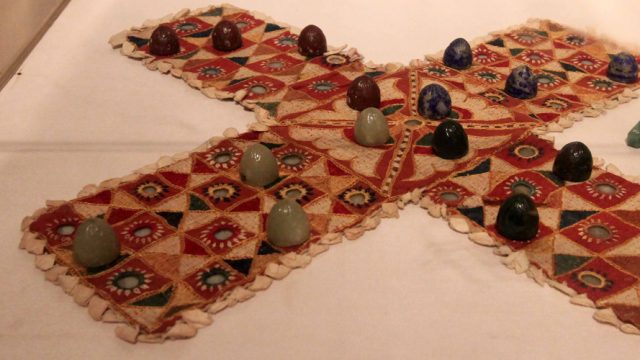Believed to be one of the oldest games in the world, chaupad is said to have undone many a man in its time. Yet, it was not until historian Abul Fazl came along that it came to be immortalised. In the first known record of the game, Fazl claims that chaupad was a popular gambling sport at the court of Mughal Emperor Akbar in Fatehpur Sikri in the 16th century. So addicted was Akbar to the game that he had flagstones laid out here to play it the way only emperors can, by using people as pawns. Chaupad is known by many names—pachisi in North India, thayakattam in Tamil Nadu and pagade in Karnataka. The game is also known to have been played in the Indus Valley in 2,300 BCE as is attested by the oblong dice that have been recovered from its sites.
Traditionally, the game is traced to the epic Mahabharata in which the Pandavas lost their kingdom in a game of dice. The word ‘chaupad’ literally means ‘that which is composed of four boards’. In the 1860s it travelled to America where one John Hamilton popularised it as Parcheesi and to Europe, where a Munich-based games manufacturer, Josef Friedrich Schmidt, introduced it as Ludo in 1914.




